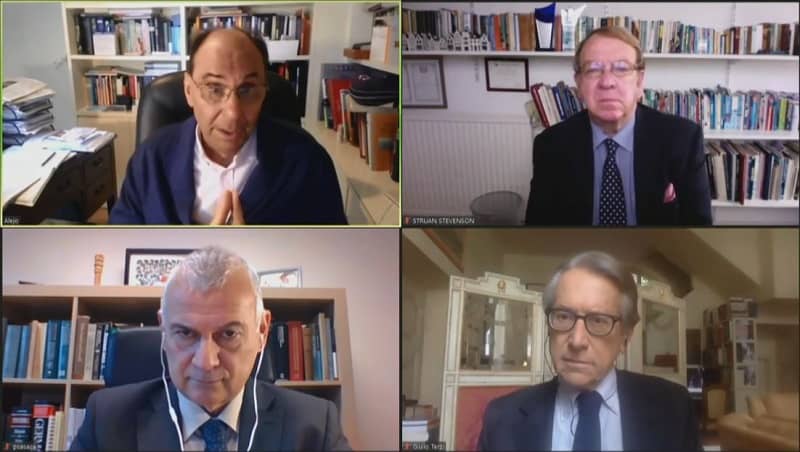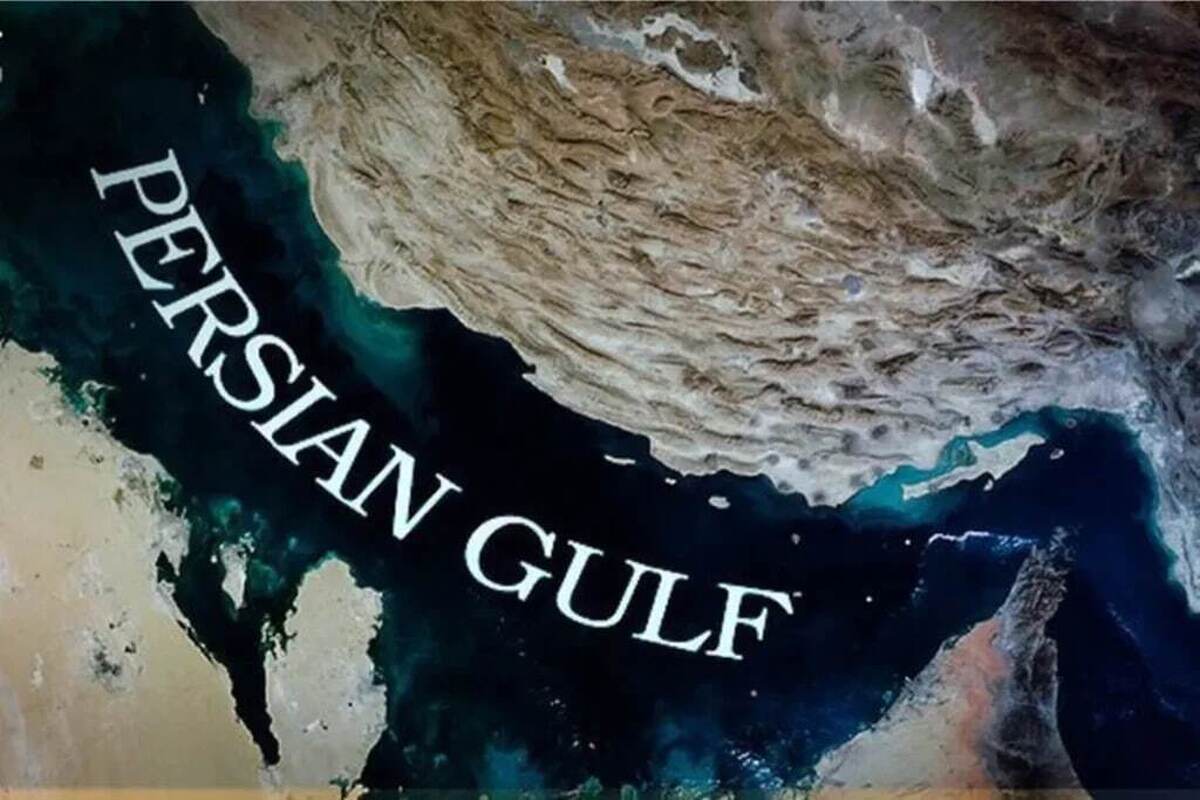
Former officials from across Europe urge change in diplomatic status toward Iran
On Thursday (28 January) a group of former government officials from more than a dozen European countries issued a statement urging the European Union and its member states to downgrade diplomatic relations with the Islamic Republic of Iran, pending guarantees for an end to the threat of Iranian state terrorism. The statement on the initiative of the International Committee in Search of Justice (ISJ) was released exactly one week ahead of the anticipated verdict in the case of Assadollah Assadi, a high-ranking Iranian diplomat who allegedly served as the mastermind of a 2018 terror plot targeting a gathering of Iranian expatriates in France. During an online panel discussion, four officials on the ISJ talked about the failure of Europe’s policy of appeasement.
ISJ President and former EP vice president Dr. Alejo Vidal Quadras said in his remarks: “If you want peace and stability, do not engage with this regime. Any engagement with Tehran will embolden them to destabilize the region. Instead, engage with the suffering Iranian people and the organized opposition. This is how we can get democracy, freedom and human rights in Iran. We have been very critical of the current appeasement policy of the European Union and the Obama administration in relation to policy on Iran, because it did not work, has not worked, and will not work. It has always been counterproductive.”
Referring to the upcoming judgment of a Belgian court regarding the Vienna-based Iranian diplomat and his accomplices, former Italian Foreign Minister, Giulio Terzi, added: “This terrorist case is not one among other cases. This is turning point, in that it shows Iran has maintained and spread it terror network in Europe, threatening the people of Europe and Iranian refugees. Assadollah Assadi made 289 trips in Europe. This is an incredible figure, which shows that he wanted to keep Tehran’s terror network alive across the continent. The blind policy of appeasement promotes and emboldens the regime to step up its intelligence and terrorism with impunity. Terrorism is a pillar of the Iranian regime. However, terrorists do not disappear by themselves. We must have a much more assertive response to the regime’s terrorism. More than 240 members of the European Parliament wrote to Josep Borrell on the need to conduct a complete review of the EU policy towards Iran. Business as usual will not work.”
The next speaker, former MEP Struan Stevenson emphasized: “The trial of the Iranian diplomat Assadollah Assadi is simply the tip of a massive terrorist iceberg. The theocratic regime has used its embassies as terror cells and bomb factories for decades, perpetrating bomb attacks, murders and kidnappings around the world. Now that one of their top agents has been caught red-handed, this must surely be a signal to the west that appeasement has failed. As High Representative for Foreign Affairs & Security, Josep Borrell has a duty to protect the lives of EU citizens. His groveling acquiescence to the theocratic fascist regime in Tehran puts the lives of our citizens at risk. Decades of appeasement must end. The EU must immediately list the IRGC as a terrorist organisation. It must expel all of Iran’s agents and spies from Europe and it must close down Iranian embassies until we get a cast-iron guarantee that they will no longer be used for terrorist purposes. On 4th February, when the verdict on the terrorist-diplomat is pronounced, the eyes of the world will be on Josep Borrell.”
Paulo Casaca, former MEP from the Socialist Group added: “European institutions should reinforce European unity, strengthen the rule of law, uphold the respect of the principles of separation of powers, and above all ensure the protection of the values that keep our countries together – among them freedom of political expression and security from terror threats. They should not act as ‘echo chambers’ of foreign, hostile, totalitarian powers aiming to subdue Europe. European citizens have the right to ask their European institutions to make it clear that the Iranian theocracy is not to claim ‘diplomatic immunity’ to enjoy ‘terrorism impunity’; that universal values are more important than commercial interests; and that all European organisms will work together for the sake of defending a clear and strong European position before its enemies.”
Assadi and three accomplices went on trial in November following a more than two year investigation. Throughout that time, critics of the Iranian regime have been pointing to the case as an example of the apparent threat posed by Iranian embassies and other institutions, especially in situations where there personnel are allowed a high degree of freedom in executing their roles and moving about European territory. As prosecution has moved forward in Belgian federal court, new disclosures have seemingly lent additional support to this conclusion while linking Assadi to networks that extended across the continent.
From evidence including receipts for cash payments that were found in Assadi’s vehicle, investigators were able to determine that the former third counsellor at the Iranian embassy in Vienna maintained contacts in at least 11 different European countries. His co-defendants represent only a small portion of this broader network, but they reveal the troubling potential for sleeper cells to be coordinated from within Iranian embassies. The two persons tasked with actually setting off the bomb in June 2018 were both Iranian expatriates who had been living as citizens in Belgium for many years, without incident.
Prosecutors noted that those two would-be bombers, Nasimeh Naami and Amir Saadouni, had traveled to Luxembourg to meet Assadi in person, where he provided them with explosives that he had smuggled into Europe while traveling on his diplomatic passport. The Belgian State Security Service has also stated in no uncertain terms that “the plan for the attack was conceived in the name of Iran and under its leadership.” Its primary target was Maryam Rajavi, the President-elect of National Council of Resistance of Iran. The main democratic opposition group, the People’s Mojahedin Organization of Iran (PMOI/MEK), is the primary organization of NCRI. But the target venue was also host to hundreds of political dignitaries, many of them from Europe and the United States, who were often in particularly close proximity to Mrs. Rajavi.
In consideration of Assadi’s direct role in the plot, as well as the potential for loss of life among Western personnel, Thursday’s statement was firm in its insistence that “the activities of Iran’s embassies and religious and cultural centers need to be scrutinized and diplomatic relations with Iran should be downgraded.” It went on to give credit to France, Albania, and the Netherlands for expelling diplomats in response to this and other terror threats, but it also expressed regret at the fact that these measures had not taken place on a larger scale.
While these expulsions and Assadi’s prosecution are notable exceptions to the larger trend, it is fair to say that the European Union as a whole has remained committed to a normal relationship with the Islamic Republic. This is evident, for instance, from the EU’s approach to preserving the 2015 nuclear deal which Iran has been systematically violating for the past two years. These violations have arguably taken place in defiance of international law. That general topic is mentioned alongside “acts of terrorism” in a 1997 resolution from the European law which sets out conditions for ongoing pursuit of diplomatic relations with Iran.
Thursday’s statement makes the case that the EU has undermined that resolution by allowing such relations to be virtually unconditional. It therefore demands that the nations of Europe demand of Iran “assurances that it will never engage in terrorism in Europe again,” and that if Tehran refuses this ultimatum, diplomatic relations should be severed entirely.
Regardless of the outcome, the statement’s signatories will continue to insist that the EU and its member states designate the Iranian Ministry of Intelligence and the Islamic Revolutionary Guard Corps as terrorist entities and then prosecute, punish, and expel anyone who is found operating at the behest of or in collaboration with either of these entities on European soil.
Thursday’s appeal was initiated by former Italian Prime Minister Giulio Terzi, who currently serves the non-profit International Committee in Search of Justice, as chairman of the Committee on the Protection of Political Freedoms in Iran. The statement was addressed to a number of figures in the leadership of the European Union, including High Representative for Foreign Affairs and Security Policy Josep Borrell.
Signatories alongside Terzi included former government ministers from France, Belgium, Albania, Germany, the United Kingdom, Ireland, Italy, Poland, Finland, Lithuania, Slovenia, and Slovakia.



